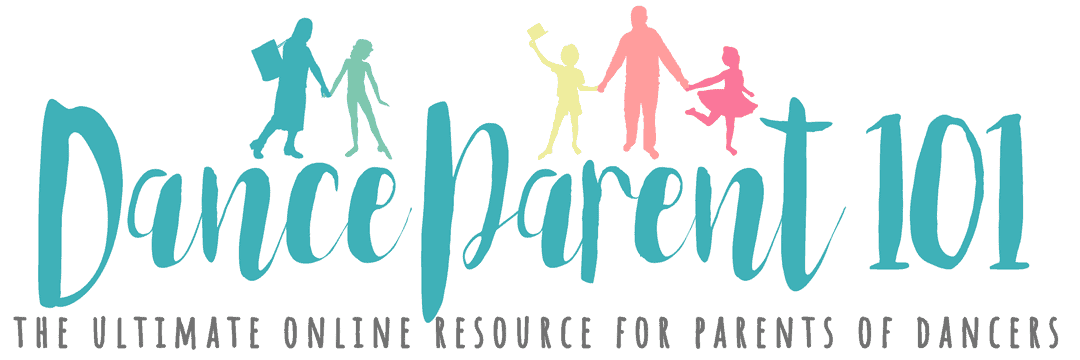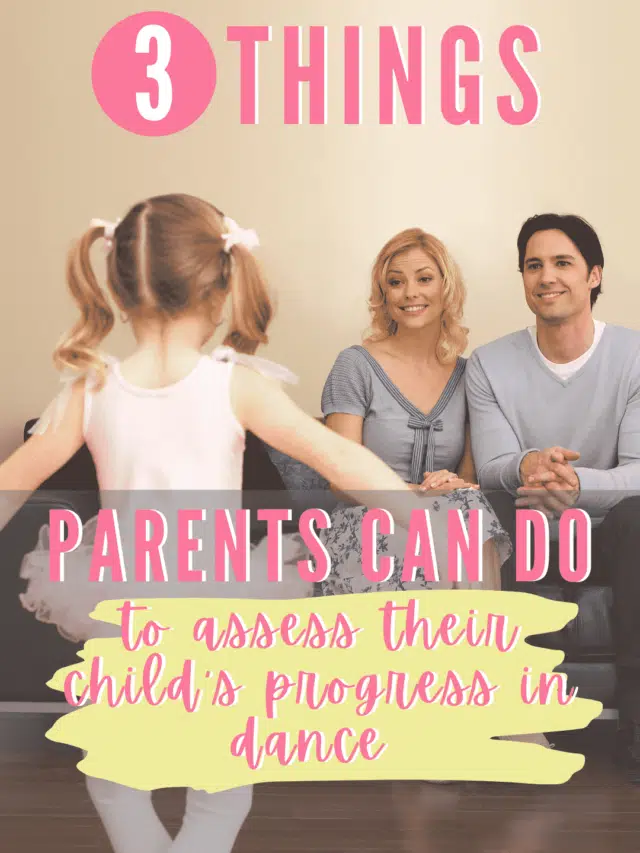By Lesley Mealor / Edited by Samantha Bellerose, B.Ed, Dip.Dance(Performing Arts)
Somehow you’ve found yourself with a child who loves to dance. Maybe you were a soccer mom who never dreamed of tutus and ballet shoes, or a swimmer in your own youth with no concept of the intricacies of a dance recital. But here you are – wondering how to determine whether your child simply enjoys ballet or dance class, if they need to be challenged more or even if they might be able to pursue it more seriously, and what that all means.
To help you measure your child’s progress in dance first, talk to your child! Second, ask your child’s teacher about their progress. Then observe a class to help piece everything together and see for yourself your child’s progress before making any further decisions about their training.

Several dance parents chime in with their experiences over the years to give additional perspectives in this article. It can be challenging to look at your child objectively, which is why taking these steps will give you the tools to make any other decisions, like adding more classes or even changing studios, with the best information possible. Don’t make any drastic changes before considering this advice about progress first!
First Action – Talk to Your Child About Dance!
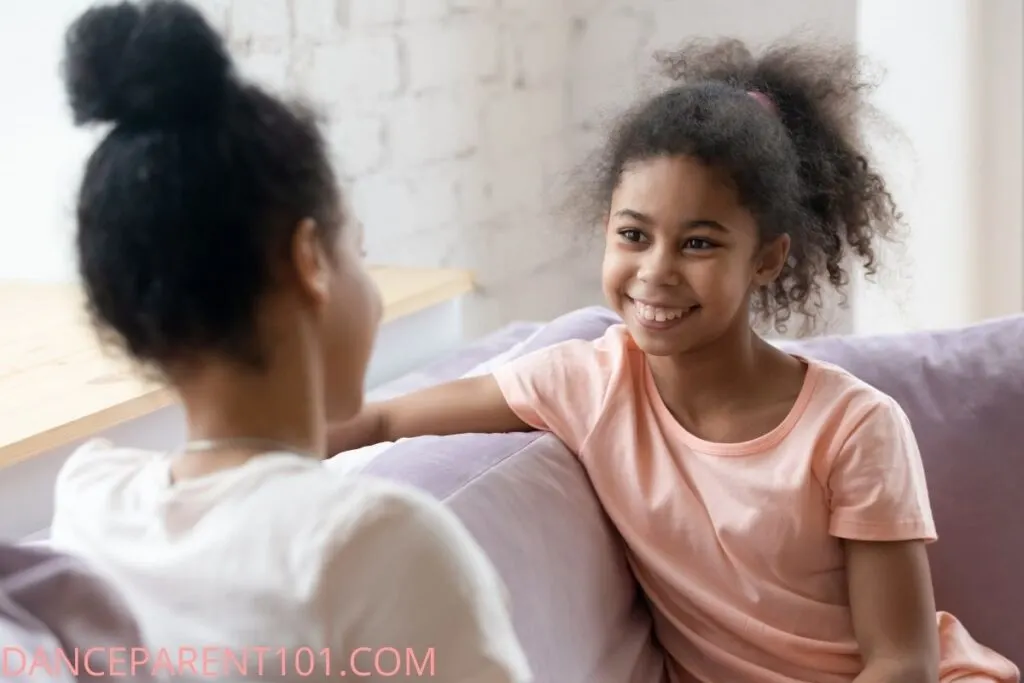
All parents want their children to enjoy what they’re doing as a recreational activity. After all, it can’t be fun to spend hard earned money on an activity your child hates!
If you have a child in dance, the very first thing on your mind should be, “Does my child enjoy this activity?” If the answer is yes, then you can move onto the next questions in relation to progress.
If you’ve determined your child enjoys dance class, but you’re still unsure if your child is making progress, start simple. Make it a habit to ask your child each week after class how it went.
I know with some kids, that question is like pulling teeth, but make it a point to get them talking about dance class.
After getting a sense that her daughter wasn’t happy in her dance classes all of a sudden, dance mom Jennifer from Ohio says, “I asked my daughter how class went? What did you work on? Did you learn anything new? How’s the routine coming along? […] I noticed that she wasn’t coming home and practicing anything new. It was the same turns, leaps, [and] tap moves she has done for the last couple of years.”
Once her daughter started coming home with more negative things to say about dance than positive, Jennifer decided to move to the next logical step, which was to speak to the teacher to try and get to the root of the problem.
Second Action – Speak To Your Child’s Dance Teacher
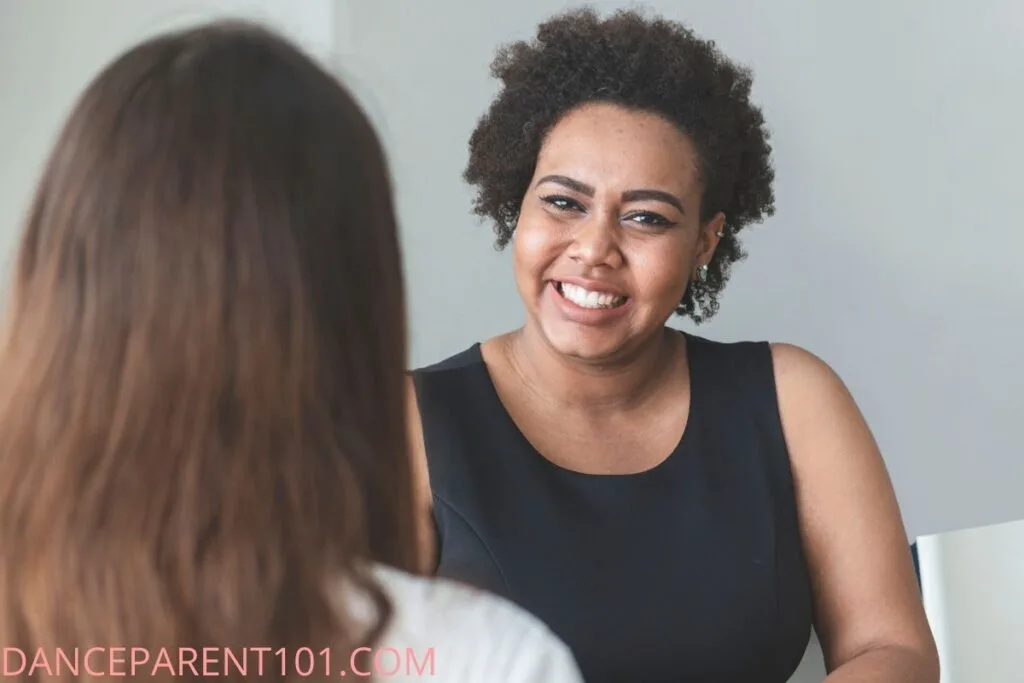
If your child doesn’t feel like they are being challenged in class or making any progress towards becoming a better dancer, it’s time to talk to the teacher. After all, they are the experts in their field, and are invested in each student being the best they can be. Some helpful things to consider when asking to speak to the teacher include:
- Timing – try to schedule a time to speak with the teacher, instead of bombarding them before or after class. Most dance teachers don’t have many breaks between classes and won’t have time to adequately address your concerns between classes.
- Attitude – come into the meeting with a positive and open mindset instead of an accusatory one. If you seek to understand the point of view of the teacher, you can work together to try and remedy whatever the situation may be in relation to your dancer’s progress.
- Questions – know what questions you should be asking. In general, you will want to know how your dancer is behaving and performing in class, what kinds of skills dancers should be learning at the age and level of your dancer, and whether the quality of instruction is up to you and your dancers’ standards.
- For more ideas, head to our article How to Effectively Sort Out Problems With Your Child’s Dance Teacher
A reputable dance studio should welcome parent questions and be willing to sit down with parents or caregivers to work out any concerns. Dance mom Amy from North Carolina had a great experience with her daughter’s teacher when she approached her about wanting to learn new skills.
She says, “I have had numerous conversations with the studio owner and individual instructors for suggestions on how to improve specific skill sets. [This] studio has always developed a plan to help my daughter increase her ability and work on technique or a specific skill she needs to learn.”
However, there are times when this approach doesn’t work for some reason. Casey, a dance mom from Missouri, tried unsuccessfully to speak with her child’s teacher about moving her levels after realizing her daughter felt held back in her classes.
“[My daughter] would say she wasn’t being pushed and when she asked how to fix things in her solo, her teacher wasn’t able to help her. […] We were both feeling frustrated. I waited until auditions came around this spring and reached out to her coach.”
Casey continues, “When we first started at the studio we were told she would never be held back because of her age. The director would not flat out say that it was because of age [that she wouldn’t allow her to change levels] but she did agree that she was a stronger dancer [than the girls in her current level].”
After this conversation, Casey and her daughter made the difficult decision to change studios, and her daughter now feels like she’s in the right place to grow as a dancer. As you can see, the responses to parent concerns may vary, but you never know until you ask. Only then will you have the most information to make an informed decision with your child.
For a more in-depth look at what questions to ask your child’s dance teacher about progress, and more importantly, the questions NOT to answer, read my article here.
Third Action – Ask To Observe Class
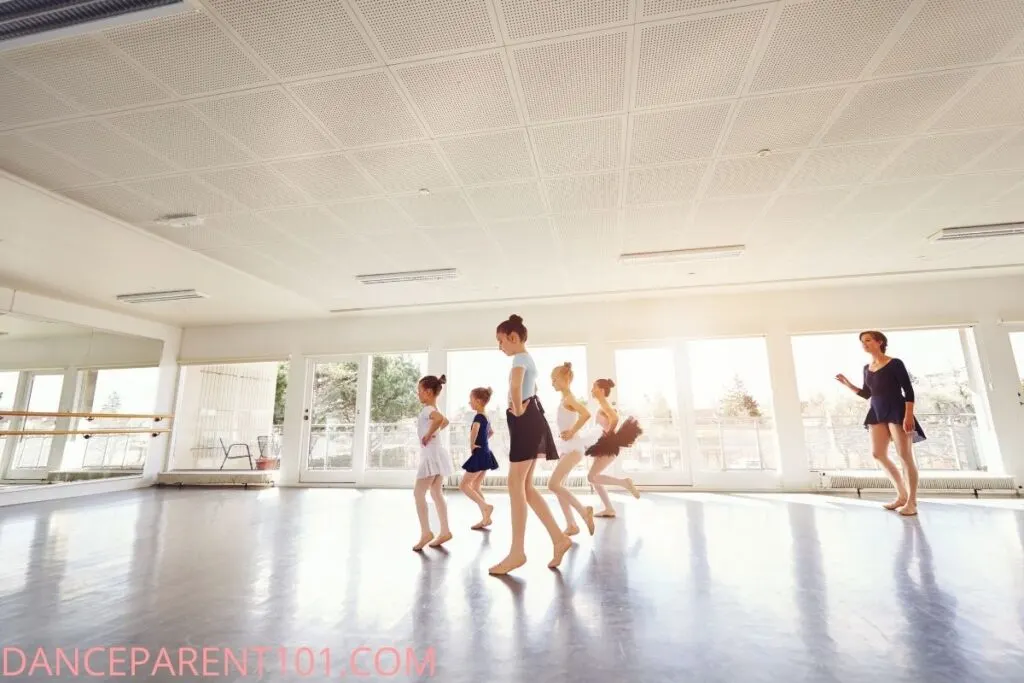
Even if you are a non-dancer, you know your child best, and if you are willing to honestly and objectively watch their dance class, you will be able to discern whether they are making progress from the previous year.
Many studios have the benefit of viewing windows or closed circuit tvs in the lobby that broadcast what’s going on in the studio. If you usually leave to run errands or go home during your child’s class, this is the easiest way to check out what your child’s dance class is like. Simply stay put and watch! This way, you will get the most pure example of how your child participates in class and how the class runs.
If your studio has a closed door policy or no viewing windows or tv, you will need to ask for permission to watch class. Of course, your child will be on their best behavior if they know you are watching, so if the concern about progress is poor behavior, this may not be the best way to observe. But, if the desire is just to watch how the class works and how your child participates, this option will be fine.
Many studios have a parent observation week a few times a year, where caregivers and parents are invited to view class. Again, dancers who know they’re being watched in class will usually be on their best behavior and demonstrate their best class-taking skills, so while this isn’t an unhelpful option in the slightest, just take whatever you see with a grain of salt knowing that this may not be how things go normally.
Lastly – Assess your Child’s progress from your research
The next step is to come to some conclusions from your conversations and observations. If you are new to dance you might now realize that your child is progressing fine and there is no need to do anything else at this stage.
But whether you are new or an old hand, from this process you may have realized that some changes need to be made.
Not sure of what you should do next? I go through 4 actions you can consider taking if your child is not progressing in dance or ballet in this article here.
